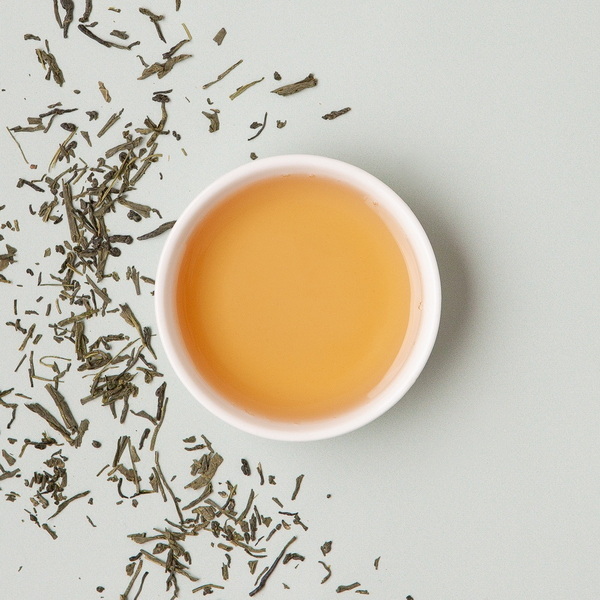Content Menu
● The Health Benefits of Green Tea Extract
● Recommended Dosage
● How Often Should You Take Green Tea Extract?
● How to Incorporate Green Tea Extract into Your Routine
● Potential Side Effects
● Interactions with Other Medications
● Lifestyle Considerations
● Conclusion
● FAQs
>> 1. What is the best time of day to take green tea extract?
>> 2. Can I take green tea extract on an empty stomach?
>> 3. Are there any interactions with medications?
>> 4. How long does it take to see results from taking green tea extract?
>> 5. Is it safe to take green tea extract long-term?
● Citations:
Green tea extract (GTE) is a concentrated form of green tea that offers numerous health benefits due to its high content of antioxidants, particularly catechins. Among these, epigallocatechin gallate (EGCG) is the most studied and recognized for its potential health advantages. This article explores the recommended dosages, optimal frequency of intake, potential side effects, and overall health benefits of green tea extract.

The Health Benefits of Green Tea Extract
Green tea extract is renowned for its various health benefits, including:
- High Antioxidant Content: GTE is rich in catechins, which help combat oxidative stress and reduce cell damage. These antioxidants are crucial in neutralizing free radicals that can lead to chronic diseases.
- Weight Management: Studies have shown that GTE can aid in weight loss by enhancing fat oxidation and improving metabolic rates. A review published in the International Journal of Obesity found that green tea extract consumption can lead to significant reductions in body weight and fat mass.
- Heart Health: Regular consumption may lower cholesterol levels and improve blood pressure. Research indicates that GTE can improve endothelial function and reduce the risk of cardiovascular diseases by promoting healthy blood flow.
- Brain Health: Antioxidants in GTE may enhance cognitive function and reduce the risk of neurodegenerative diseases. A study published in The American Journal of Clinical Nutrition suggested that regular green tea consumption is associated with a lower risk of dementia.
- Cancer Prevention: Some research suggests that the compounds in GTE may help prevent certain types of cancer. For instance, studies indicate that EGCG may inhibit tumor growth and metastasis in various cancers, including breast, prostate, and colorectal cancers.
Recommended Dosage
The recommended dosage of green tea extract varies depending on individual health goals and conditions. Here are some general guidelines:
- General Health: 250–500 mg per day is commonly recommended for overall well-being. This dosage provides a sufficient amount of antioxidants without overwhelming the system.
- Weight Loss: For those aiming to lose weight, a dosage between 500 mg to 1,000 mg per day may be more effective. Some studies have shown that higher doses can enhance fat burning during exercise.
- Specific Health Conditions: Higher doses, up to 1,440 mg per day, have been used in clinical studies for conditions like obesity and metabolic syndrome. However, these higher dosages should only be taken under medical supervision.
It is advisable to take green tea extract with food to minimize potential side effects such as gastrointestinal discomfort or liver toxicity.
How Often Should You Take Green Tea Extract?
Based on various studies and health recommendations:
1. Daily Intake: It is generally safe to take green tea extract daily. Most studies suggest a consistent daily intake for optimal results.
2. Frequency Options:
- Once Daily: Taking the full recommended dose at once can be convenient for those with busy schedules.
- Divided Doses: Splitting the daily dose into two or three smaller doses throughout the day may enhance absorption and minimize side effects. For example, taking 250 mg in the morning and another 250 mg in the afternoon can help maintain steady levels of catechins in the bloodstream.
How to Incorporate Green Tea Extract into Your Routine
Incorporating green tea extract into your daily routine can be straightforward:
- Supplement Form: GTE is available in capsules or powder form. Choose a reputable brand that provides clear dosing instructions on the label.
- Beverages: Some people prefer consuming it as part of their beverages. You can add green tea powder to smoothies or yogurt for an extra antioxidant boost.
- Cooking: Green tea extract can also be used in cooking. Incorporating it into salad dressings or marinades adds flavor while providing health benefits.

Potential Side Effects
While green tea extract is beneficial, excessive intake can lead to adverse effects:
- Liver Toxicity: High doses (over 800 mg of EGCG) have been linked to liver damage in some individuals. Symptoms may include jaundice, abdominal pain, or dark urine. It's essential to monitor your body's response when starting any new supplement.
- Gastrointestinal Issues: Some individuals may experience nausea or upset stomach if taken on an empty stomach. Taking GTE with food can help mitigate these effects.
- Caffeine Sensitivity: GTE contains caffeine; therefore, those sensitive to caffeine should monitor their total intake from all sources. If you experience jitteriness or insomnia, consider switching to decaffeinated options or reducing your dosage.
Interactions with Other Medications
It's crucial to be aware of potential interactions between green tea extract and certain medications:
- Blood Thinners: GTE may enhance the effects of anticoagulant medications like warfarin, increasing the risk of bleeding.
- Stimulants: Combining GTE with other stimulants may amplify side effects such as increased heart rate or anxiety.
Always consult with a healthcare professional before starting green tea extract if you are taking medications or have underlying health conditions.
Lifestyle Considerations
To maximize the benefits of green tea extract:
- Balanced Diet: Pairing GTE with a balanced diet rich in fruits, vegetables, whole grains, and lean proteins will enhance overall health benefits.
- Regular Exercise: Incorporating physical activity into your routine can further support weight management and cardiovascular health when combined with GTE supplementation.
- Hydration: Staying well-hydrated is essential for overall health; consider drinking water throughout the day alongside your supplement regimen.
Conclusion
Green tea extract can be a powerful addition to your health regimen when taken appropriately. The recommended dosage typically ranges from 250 mg to 1,000 mg per day, depending on individual health goals. Daily consumption is advisable for maintaining its benefits; however, it's essential to consult with a healthcare professional before starting any new supplement regimen. By understanding how often and how much to take green tea extract, you can harness its numerous health benefits effectively while minimizing potential risks.

FAQs
1. What is the best time of day to take green tea extract?
Taking green tea extract in the morning or before meals is often recommended for better absorption and energy boost.
2. Can I take green tea extract on an empty stomach?
It's best not to take green tea extract on an empty stomach due to the risk of gastrointestinal discomfort.
3. Are there any interactions with medications?
Yes, green tea extract may interact with blood thinners and certain medications; consult your doctor if you are on medication.
4. How long does it take to see results from taking green tea extract?
Many people report noticing benefits within a few weeks of consistent use, particularly regarding weight management and energy levels.
5. Is it safe to take green tea extract long-term?
When taken within recommended dosages, it is generally safe for long-term use; however, monitoring liver function may be prudent for high doses.
Citations:
[1] https://pubmed.ncbi.nlm.nih.gov/11251015/
[2] https://www.healthline.com/nutrition/10-benefits-of-green-tea-extract
[3] https://corpina.com/green-tea-extract/
[4] https://consensus.app/questions/much-green-take-daily/
[5] https://pmc.ncbi.nlm.nih.gov/articles/PMC6412948/
[6] https://www.canada.ca/en/health-canada/services/food-nutrition/public-involvement-partnerships/notice-modification-list-permitted-supplemental-ingredients-permit-use-green-tea-extract-supplemental-ingredient-foods/document.html
[7] https://www.medicalnewstoday.com/articles/269538
[8] https://www.drugs.com/npp/green-tea.html
[9] https://www.peacehealth.org/medical-topics/id/hn-2102007






























